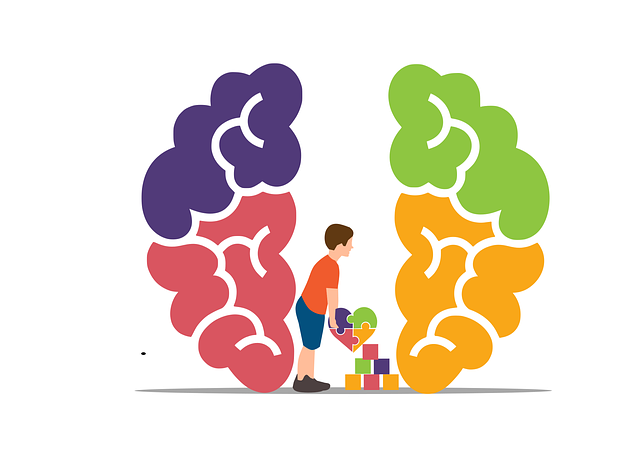Greenwood Village Mandarin Chinese Speaking Therapy is a community outreach program that bridges cultural and linguistic gaps in mental health support, fostering belonging and understanding. Through tailored initiatives like Public Awareness Campaigns, Mindfulness Meditation, and Social Skills Training, they address diverse needs, reduce stigma, and encourage open dialogue about mental health. By collaborating with community leaders and hosting interactive workshops, the therapy center boosts engagement, prevents therapist burnout, and creates a supportive network. This targeted outreach expands access to essential services, enhances well-being, and strengthens community resilience, demonstrating the program's significant role in addressing diverse linguistic and cultural communities' needs.
Community outreach programs, like Greenwood Village Mandarin Chinese Speaking Therapy, are transforming local landscapes. This article explores the power of such initiatives in enhancing language access and addressing stigma. We delve into effective strategies for engaging communities, building trust, and overcoming barriers to provide quality therapy. By examining success metrics, we uncover how these programs create lasting impacts, fostering inclusive environments where everyone has the chance to thrive linguistically and emotionally.
- Understanding Community Outreach: Why Greenwood Village Mandarin Chinese Speaking Therapy Matters
- Defining Effective Outreach Strategies for Language Therapy Programs
- Engaging the Local Community: Building Trust and Partnerships
- Overcoming Barriers: Addressing Access and Stigma in Language Therapy
- Measuring Success: Evaluating the Impact of Community Outreach Programs
Understanding Community Outreach: Why Greenwood Village Mandarin Chinese Speaking Therapy Matters

Community outreach programs play a pivotal role in bridging the gap between services and those who need them most. Understanding the unique needs and cultural nuances of the community is essential for effective implementation. In this regard, Greenwood Village Mandarin Chinese Speaking Therapy stands as a shining example. With a focus on serving a specific demographic, this initiative aims to enhance access to mental health support for Mandarin-speaking individuals within the village. Such localized efforts are crucial in fostering a sense of belonging and cultural understanding.
Greenwood Village Mandarin Chinese Speaking Therapy highlights the significance of tailored programs that cater to diverse linguistic and cultural backgrounds. By incorporating elements like Public Awareness Campaigns Development, Mindfulness Meditation, and Social Skills Training, the therapy sessions become inclusive and impactful. These strategies not only address individual needs but also contribute to building a more connected and aware community, ensuring that everyone has the opportunity to thrive and reach their full potential.
Defining Effective Outreach Strategies for Language Therapy Programs

Defining effective outreach strategies is essential for language therapy programs like Greenwood Village Mandarin Chinese Speaking Therapy to thrive and reach a wider audience. These initiatives are crucial in promoting mental health awareness, particularly within diverse communities. By tailoring their approach, therapists can ensure that services cater to specific cultural needs, fostering better engagement and outcomes. For example, when targeting Mandarin-speaking populations, it’s vital to incorporate translators or culturally sensitive materials to bridge the communication gap.
Outreach programs should aim to boost confidence among individuals who may be hesitant to seek therapy due to language barriers or cultural stigma. Through interactive workshops, community events, and personalized outreach, therapists can educate and dispel misconceptions. Moreover, these strategies can prevent burnout among professionals by providing a diverse support system and ensuring services are accessible, thereby enhancing the overall well-being of both the community and the therapists themselves.
Engaging the Local Community: Building Trust and Partnerships

Engaging the local community is a cornerstone of successful outreach programs, particularly when focusing on sensitive topics like mental health and well-being. Organizations like Greenwood Village Mandarin Chinese Speaking Therapy understand that building trust and fostering partnerships are essential to long-term impact. By connecting with community leaders, schools, and cultural centers, they can tailor their services to meet the unique needs of diverse populations. This collaborative approach not only enhances accessibility but also promotes a sense of belonging and understanding.
Partnering with local entities allows for knowledge sharing and resource utilization, ensuring that programs are culturally relevant and effective. Through these collaborations, Greenwood Village Mandarin Chinese Speaking Therapy aims to boost confidence, prevent burnout, and develop inner strength among residents, particularly those who may face language barriers or cultural challenges. By engaging the community, they create a network of support that reverberates beyond individual therapy sessions, fostering a healthier and more resilient community overall.
Overcoming Barriers: Addressing Access and Stigma in Language Therapy

In Greenwood Village, Mandarin Chinese speaking therapy has played a pivotal role in overcoming barriers to language accessibility and addressing stigma. Many communities face challenges when it comes to providing effective therapy services to diverse populations, especially those with cultural or linguistic differences. This is where tailored outreach programs make a significant difference. By offering specialized therapy sessions in the native language, such as Mandarin Chinese, communities can ensure that individuals from these backgrounds receive the support they need without facing communication barriers.
One of the key aspects of successful community outreach is fostering an environment of trust and understanding. Language therapists who are sensitive to cultural nuances and capable of providing services in Mandarin Chinese can better connect with clients, encouraging open dialogue about personal struggles, including mental health issues and stress management. This approach not only facilitates access to therapy but also promotes inner strength development and burnout prevention, ultimately enhancing the overall well-being of the community.
Measuring Success: Evaluating the Impact of Community Outreach Programs

Measuring the success of community outreach programs like Greenwood Village Mandarin Chinese Speaking Therapy is vital for understanding their true impact. Going beyond simple attendance numbers, evaluation should focus on behavioral changes and improved emotional intelligence within the targeted communities. By integrating Mental Health Policy Analysis and Advocacy, we can ensure that these programs are not only reaching individuals but also fostering long-term positive outcomes related to Mental Health Awareness.
Effective assessment strategies might include pre- and post-program surveys to gauge participants’ perceptions of their mental well-being, as well as community feedback mechanisms. These tools help identify the program’s strengths and areas for improvement, allowing for data-driven adjustments to better serve the community’s evolving needs.
Community outreach programs, such as Greenwood Village Mandarin Chinese Speaking Therapy, play a pivotal role in enhancing access to language therapy and fostering cultural connections. By implementing effective strategies, engaging local communities, and overcoming barriers, these initiatives significantly impact individuals’ lives, promoting inclusivity and improving mental health within diverse populations. Through measured success evaluations, we can continue to refine and expand these programs, ensuring their longevity and positive influence on society.














